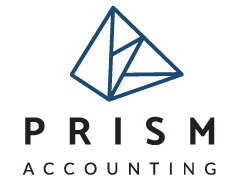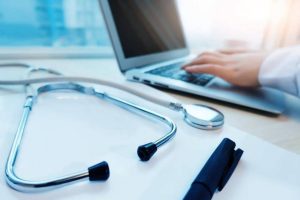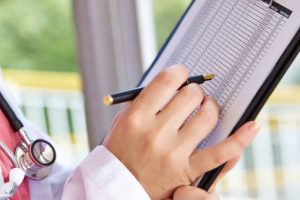Each year, doctors and medical professionals incur a substantial amount of expenses for work or business purposes. Some of these expenses can be easily overlooked or forgotten in the end-of-the-year rush. We have summarised the top 10 most commonly forgotten tax deductions for doctors.
Self-Education Expenses
Doctors are spending thousands of dollars on self-education each year to satisfy continuing professional development (CPD) requirements to maintain their professional registration. Cost of self-education can be deductible if the education relates to your current employment or business activity.
Deduction for self-education will be allowable if the study maintains or improves a skill or specific knowledge required in current employment or business activities (e.g. CPD courses), or is likely to result in an increase in income from your current employment or business activities (e.g. fellowship or a specialist accreditation course).
Examples of self-education expenses for doctors include:
- Course fees
- Exam fees
- Conferences and seminar fees
- Textbooks, professional library subscriptions
- Travel, overnight accommodation and meals, parking costs
- Phone, Internet and other running expenses associated with study
- Cost of equipment to the extent used for study purposes (must be depreciated if over $300)
You cannot deduct expenses that have no specific connection to income producing activity (e.g. self-development courses), or if the expense enables you to get new employment or start new business activity (e.g. a nurse studying to be a doctor).
If you take out FEE-HELP loan to finance your higher education course fees, you may be eligible to claim a tax deduction when you incur these costs.
However, you cannot claim deduction for student contribution amounts on study loans subsidised by HECS Scheme (Commonwealth Supported Places) or for repayment of your HECS/HELP Loans balance.
Car Expenses
If you use your car for work or business related purposes, you can claim deduction for motor vehicle expenses. Motor vehicle expenses can be claimed using two available methods:
– Logbook (requires to maintain logbook to record odometer reading for at least 12 consecutive weeks)
– Cents per Km (using set rate per km, up to a maximum of 5,000 km).
The logbook method allows you to claim business related percentage of all running expenses for your car, including fuel, registration, insurance, maintenance and other running costs, as well as depreciation for decline in value of the car (based on the car cost, up to a certain limit), finance costs, or leasing charges.
If you are using your car for business related travel and did not maintain a logbook, you can claim eligible car expenses using cents per km method (capped at 5,000 km). The set rate per km in 2021 is 72 cents.
Business related travel generally includes:
- Travel between workplaces (e.g. hospital to hospital)
- Travel from home to alternative (irregular) workplaces
- Travel from home when being paid for being on call (e.g. in case of emergency).
Travel between home and regular places of work is considered to be private travel and is not tax deductible. This is also the case if you have to work from home.
Keep in mind that if you intend to claim car expenses using the set rate per km method, you are still required to be able to substantiate your claim. Many doctors are missing out on tax deductions for car expenses as a result of not keeping proper records. Make sure you keep records of your car travel (e.g. diary entries) to be able to demonstrate the basis of your calculation.
Travel Expenses
Doctors and medical professionals are often required to travel for work, business or study-related purposes. Travel expenses are tax deductible if they relate to income producing activity. They may include:
- Airfares,
- Train, tram, bus, taxi, or ride-sourcing fares,
- Car hire fees and running costs,
- Accommodation,
- Meals and incidentals for overnight trips
If the travel is undertaken for both business and private purposes (e.g. for holidays), only the business-related portion will be deductible. Expenses must also relate to you personally, so if your family members are travelling with you, you need to apportion the costs. If you travel away from home for six or more nights in a row, you need to keep a travel diary.
Travel expenses incurred by locum doctors to travel to remote or rural place are likely to be deductible, provided the place of locum work does not become a regular place of work. This can be a grey area and depends of particular facts in each case.
Medical Indemnity Insurance
All practising medical practitioners must be insured or otherwise indemnified for their scope of practice. Having an appropriate level of Medical Indemnity Insurance is also a requirement for maintaining registration with AHPRA.
Medical Indemnity Insurance premiums can be paid monthly or annually. Your medical indemnity insurance is tax deductible in the year it is paid.
Subscriptions and Memberships
Typical tax deductible memberships and subscriptions expenses for doctors include:
- AHPRA Registration fees
- Specialist Medical College membership fees
- Professional associations and societies memberships (e.g. AMA)
- Union Fees (e.g. ASMOF)
- Medical Journal Subscriptions
Uniform, Clothing and Protective Wear
If you wear uniform, occupation specific clothing or protective wear , you can claim costs you incur for buying, hiring, repairing or replacing these items. You can also claim laundry and dry cleaning expenses.
Common examples of the items you can claim include:
- Medical scrubs,
- Lab coats,
- Theatre shoes and clogs with non-slip properties
- Protective glasses
- Surgical caps
- Surgical masks
You cannot claim deductions for conventional clothing even if you only use these items for work or if your employer requires you to adhere to a specific dress code. For example, business attire worn by doctors, specialists and other medical professionals will not be deductible.
Phone and Internet Expenses
Doctors often use their phone and computer equipment for work purposes. Tax deductions can be claimed on phone and internet expenses to the extent they were incurred for work or business purposes.
To work out the business percentage of phone and internet expenses, the ATO requires you to keep records for a four-week representative period in each income year. These records may include diary entries, including electronic records, and bills. If the usage is not itemised on your bill, you can determine your business-related use with reference to number or duration of calls. If the use is only incidental, you do not need to keep records if the deduction does not exceed $50.
Costs of Equipment
You can claim deduction for cost of equipment to the extent it is used for work or business related purposes.
Common examples of work-related equipment purchased by doctors include:
- Smartphone, laptops, tablets and other electronic devices
- Medical equipment (e.g. stethoscope, ultrasound machines, ECG machines)
- Purchase of software licences for electronic devices and medical equipment
- Protective items and safety equipment
- Work bags, briefcases, laptop bags
For employed medical professionals, purchases of items costing $300 or over must be depreciated over their effective life period. Items costing less than $300 are tax deductible immediately.
Doctors carrying on a business can be eligible to claim a deduction for the entire cost of equipment (or the relevant business percentage) in the year of purchase.
Income Protection Insurance
You can claim the cost of premiums you pay for income protection insurance during financial year as a tax deduction. The premiums are tax deductible where the cover is designed to replace your income in case you are unable to work in case of an accident, illness or major trauma.
What insurance premiums are not deductible?
You cannot claim a tax deduction for any part of your income protection premium that relates to a compensation that would be capital in nature, such as:
- Life insurance
- Trauma or critical illness
- Lump sum TPD insurance
- Needle stick insurance
If your income protection is bundled with other elements, you may be able to claim portion that relates to income protection.
You cannot claim tax deduction for income protection policies taken out through your superannuation fund. These premiums would be tax deductible to your super fund and not yourself personally.
Interest on Business Loans
Doctors running a business often forget that they are able to claim deduction for interest incurred on loans taken out for business-related purposes. This may include line of credit to pay for business-related expenses, equipment and fitout finance, and business credit cards.
We are often asked if interest expense on loans to pay tax is deductible.
It may be deductible to medical professionals carrying on a genuine business (not a PSI activity). There are a number of factors that ATO is known to take into account to determine eligibility for deduction in private rulings. It is important to consult a qualified tax adviser to see if tax deduction can be claimed in your circumstances.
While some of these expenses may seem insignificant individually, when added up, they can result in substantial tax savings. It’s a good idea to get into a habit of keeping track of your expenses so that they can be easily summarised and presented to your accountant for tax time.
Need Help?
Not sure what tax deductions you can claim as a medical professional? Get in touch with us to speak to a Medical Accounting Specialist.
Disclaimer: All the information provided on this website is of general nature and does not constitute tax, legal or financial advice. It does not take into account your personal circumstances and is not intended to replace consultation with a qualified professional.




